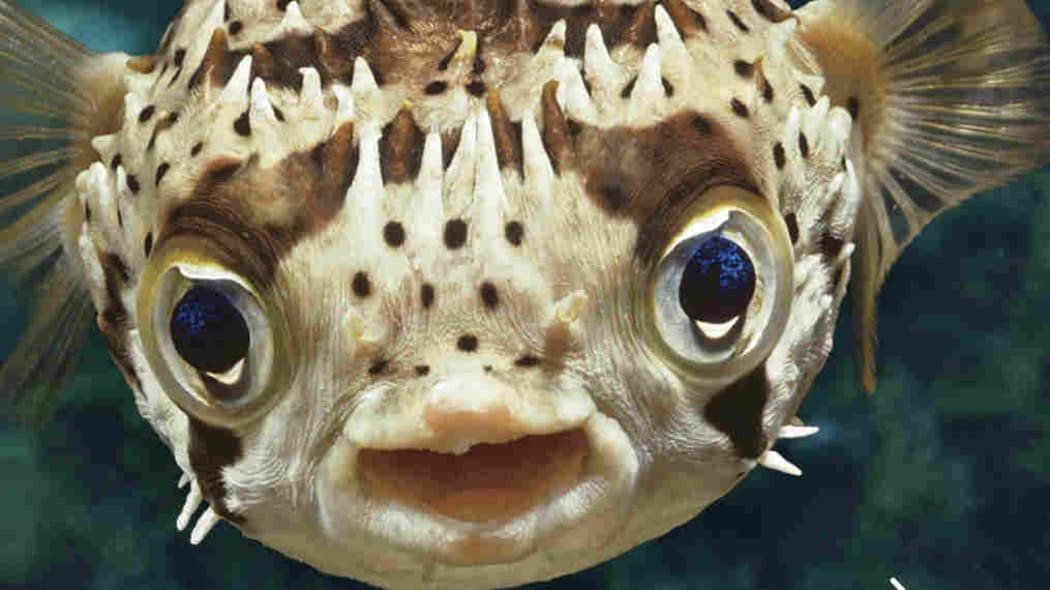Fish experience joy and loss, and they have the capacity to play and plan and even scheme against each other – says Jonathan Balcombe, author of What a Fish Knows: The Inner Lives of our Underwater Cousins.
Balcombe says new advances in science are allowing researchers to understand aquatic creatures in new ways and prove fish feel so much more than they’re generally given credit for. His critics say the evidence is anecdotal and hopeful at best.
Jonathan Balcombe is the Director of Animal Sentience with the Humane Society Institute for Science and Policy.
Interview highlights
Jonathan Balcombe: The two most common contexts [in which] we think of fishes are either as a source of food or as a source of recreation. But they have their own lives and they’re richly lived lives. They have social lives, they recognise each other as individuals. They have tool use, they have sex lives. There’s evidence for play, planning, scheming, cognition, emotion. There’s a whole gamut of experiences they have.
I like to say that sentience is the bedrock of ethics – and sentience is the capacity to feel... Because they can feel, they can experience pain and suffering and also pleasure and joy and the whole spectrum of experiences that may come within that.
Do they have the same experiences we have? No, I don’t suggest they do. We have some they don’t. But we should be aware of the possibility that they have some that we don’t.
In a recent study, rainbowfishes were divided into two groups and put into two chambers. One was an enriched chamber – it had dimmer light, which fishes prefer, it had places to hide, rocks and vegetation. There was another chamber that was attached – they could swim over to this chamber if they wished – it was an empty, brightly lit chamber. So there was nowhere to hide and they would probably feel exposed there. You can probably guess all of the fishes spent all of their time in the first chamber.
Then they injected half of these rainbowfishes with an acid solution which is caustic and we may expect caused lasting pain. The other group were injected with a saline solution – so apart from the prick of the needle they probably didn’t feel any lasting pain – if they are sensate to pain.
They all remained in the same enriched chamber until they dissolved a painkiller – in this case Lidocaine – into the barren, avoided chamber – the brightly lit one. And lo and behold some of the fishes began to wander over into that chamber and spend time there. It was only those who were injected with the acid. The ones who were injected with the saline remained in the enriched chamber. The ones injected with the acid went over to where they could get pain relief.
Grouper fishes are large chunky fishes of reefs and morays are slender fishes of reefs that are eels – they’re sort of like the ferrets of the sea. Groupers, when going foraging, will often try to recruit a moray to join them in the foraging foray. The grouper signals to the moray with a head shake or a full body shimmy – you can watch YouTube videos of them in action. And if the moray is in the mood they swim off together. They look like a couple of pals out of a Disney film. They swim over the reef and they work as a team. The way it works is if they chase a fish and the fish hides in the reef, the moray goes in after it and can either catch that fish, or if the fish escapes into the open water you know who’s waiting – it’s the grouper... The grouper will spend up to 25 minutes pointing, hoping the moray will get the message and come over and try to ferret this fish out.
A fish can get stress relief by getting caressed, by getting a massage - that to them feels good. The motivation for so-called ‘client’ fishes to wait their turn to be plucked over by cleaner fishes on reefs is a really widespread, well-known, well-studied symbiosis in the seas. I think the main motivation besides getting parasite removal service is that it feels really nice. It’s like us going to a spa, it feels good. And they have that, too.
I do hope we will bring fishes into our circle of moral concern... We kill huge numbers of fishes, huge numbers. It’s easy to forget they're individuals.


